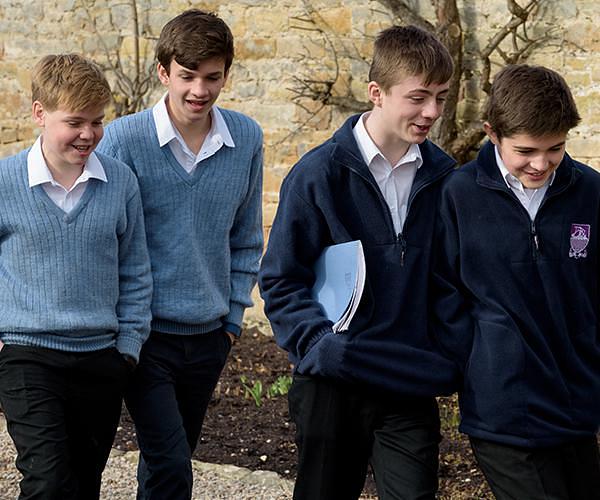Time to Think
Time to think
by the Headmaster, Mr Titus Edge.

One of the daily rituals of Gordonstoun life which I cherish is morning Chapel at 8.15. It is of course so much more than a simple ritual; it is a community to coming together for about 20 minutes at the start of each day, helping to create the cohesive and inclusive atmosphere of which to school is rightly proud. It is also a time for students and staff to listen, reflect on the words of others, and think about the day ahead before the running fight of school routine gets underway; a short, daily ceremony which anchors each day, providing focus and structure to our busy lives.
In the minutes before Chapel starts, there is always a buzz in the ambulatory before students and staff make their way to the pews. However, from the start of this term, the volume of noise generated by congregating students has been noticeably higher. It was as if someone had turned the volume switch up a notch or two over the summer holidays. At first I was uncertain as to its cause. Were the new students who arrived in September considerably noisier than those who departed at the end of the summer? Had there been some structural change to the building that had affected the acoustics?
In fact, it was neither of these things. It soon dawned on me that the increased noise was a consequence of students no longer using their mobile devices around campus. Instead of arriving in Chapel and immediately getting out their smartphones and entering the world of texts, snapchat and Instagram, students were engaging with each other in person; they were holding conversations, sharing jokes, catching up with each other, and doing so face to face, not via social media. The noise was that of excited, animated, happy human interaction and wonderful to hear at the start of each day.

In deciding that, from the start of this term, students were no longer going to be allowed to use their devices during the school day, I had anticipated a considerable backlash from at least some sections of the student body. To many born since the millennium, separation from devices can feel like surgical amputation. To them, mobile devices must seem an indispensable tool for communication, even with people in the same room. Parents and staff would of course understand the influence of mobile devices has not been entirely positive; that there is significant evidence that points to the negative impact that continual access to social media has on young people’s stress levels, their ability to concentrate and to enjoy healthy social relationships.
To my surprise and delight, the students have embraced the new policy, with only the occasional lapse into old habits. One student described how she felt liberated by not having to worry about her phone throughout the day. Whilst the school will continue to focus on educating students about the appropriate and safe use of social media, having the space to interact in person with others has, it seems, proved popular as well as healthy.

Gordonstoun has a remarkable record of producing young men and women who are at ease with themselves and in the company of others; who can look people in the eye without being intimidating; who are confident and not arrogant; who are courteous and not obsequious. Having time to think and order our lives each morning in Chapel, having a tangible sense of community that comes together each day, and having the space to forge true human relationships beyond the width of any broadband are key ingredients to that success.